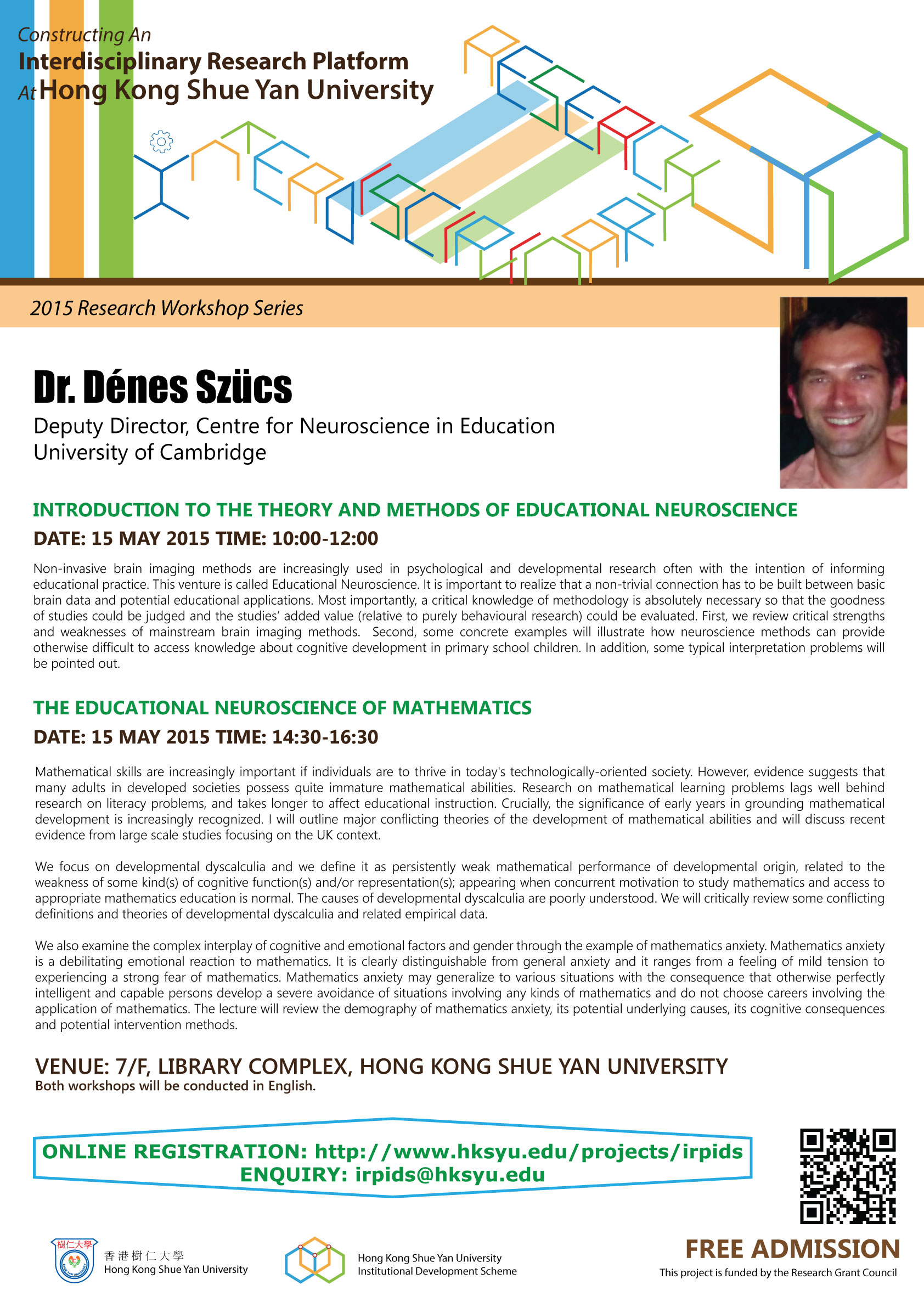The Educational Neuroscience of Mathematics
Posted by Institutional Development Scheme for HKSYU
Event Type: Research Workshop
Event Theme: Brain-based Teaching and Learning
Speaker: Dr Dénes Szűcs (Deputy Director, Centre for Neuroscience in Education, University of Cambridge)
Date: 15 May 2015 (Friday)
Time: 2:30pm - 4:30pm
Venue: 7/F, Library Complex, HKSYU
Language: English
Remarks:
1) Free Admission
2) We recommend registration in advance for seat-reservation and news update.
Introduction
Mathematical skills are increasingly important if individuals are to thrive in today's technologically-oriented society. However, evidence suggests that many adults in developed societies possess quite immature mathematical abilities. A 2011 Department for Business, Innovation and Skills survey in the United Kingdom found that 49% of the adult population could only attain standards comparable to 11 year-old children in mathematics (whereas 14.9% achieved such standards in literacy). Furthermore, 23.7% of adults reached only the standards typical for 9 year-old children (compared to 7.1% for literacy). As may be expected from these figures, research on mathematical learning problems lags well behind research on literacy problems, and takes longer to affect educational instruction. Crucially, the significance of early years in grounding mathematical development is increasingly recognized. I will outline major conflicting theories of the development of mathematical abilities and will discuss recent evidence from large scale studies focusing on the UK context.
We focus on developmental dyscalculia and we define it as persistently weak mathematical performance of developmental origin, related to the weakness of some kind(s) of cognitive function(s) and/or representation(s); appearing when concurrent motivation to study mathematics and access to appropriate mathematics education is normal. The causes of developmental dyscalculia are poorly understood. Hence, it is not surprising that there is no generally agreed upon functional definition of developmental dyscalculia. In fact, conditions which may or may not be equivalent to DD are labelled by many different names in developmental research. We will critically review some conflicting definitions and theories of developmental dyscalculia and related empirical data.
We also examine the complex interplay of cognitive and emotional factors and gender through the example of mathematics anxiety. Mathematics anxiety is a debilitating emotional reaction to mathematics. It is clearly distinguishable from general anxiety and it ranges from a feeling of mild tension to experiencing a strong fear of mathematics. Mathematics anxiety may generalize to various situations with the consequence that otherwise perfectly intelligent and capable persons develop a severe avoidance of situations involving any kinds of mathematics and do not choose careers involving the application of mathematics. The lecture will review the demography of mathematics anxiety, its potential underlying causes, its cognitive consequences and potential intervention methods.



